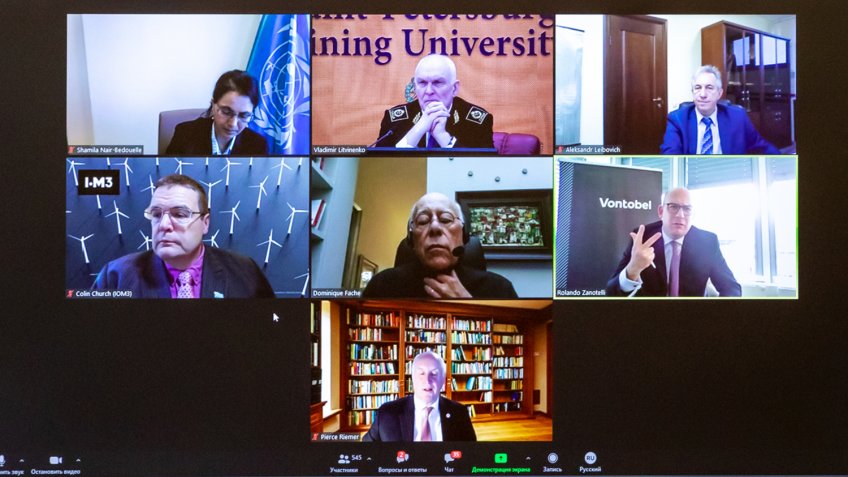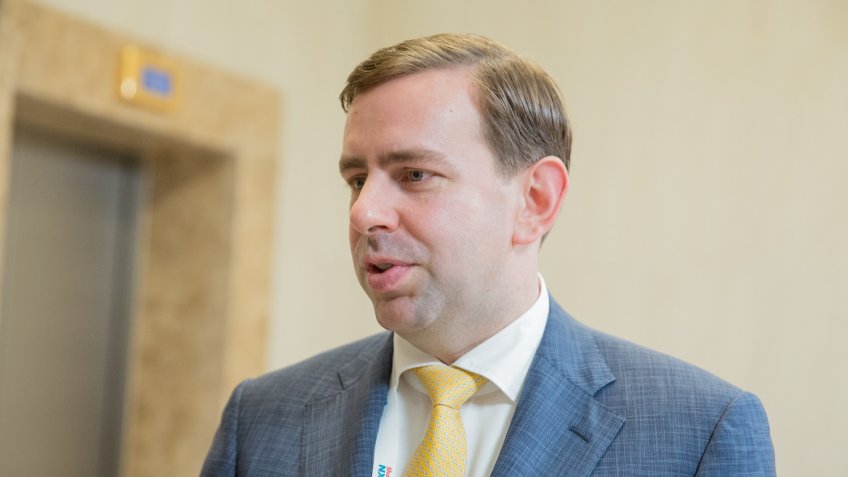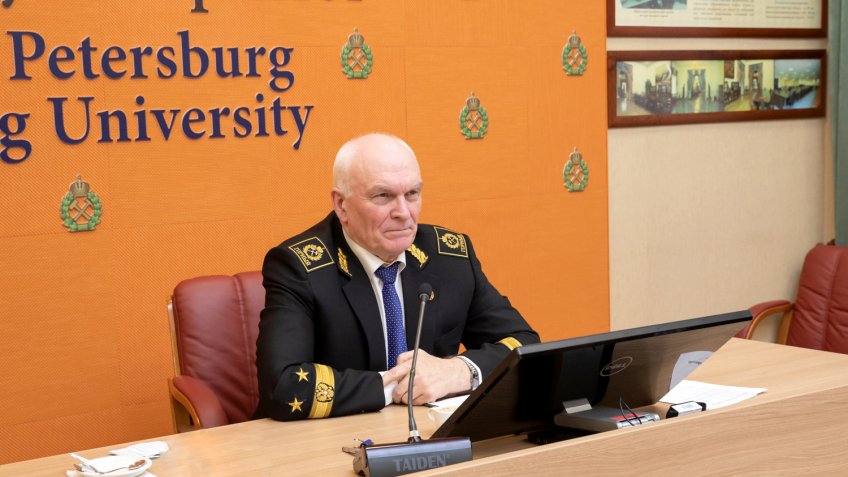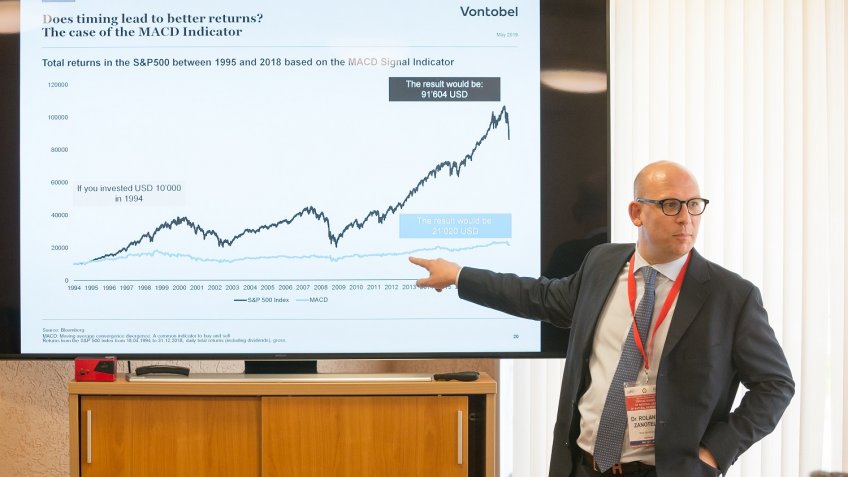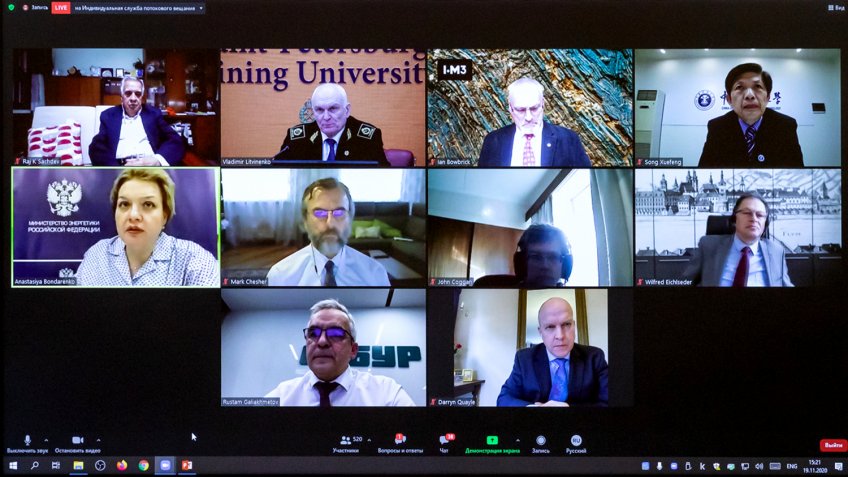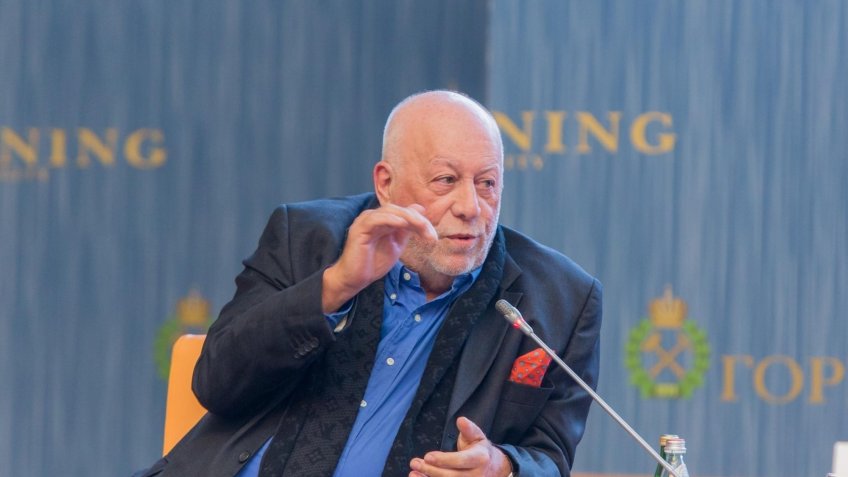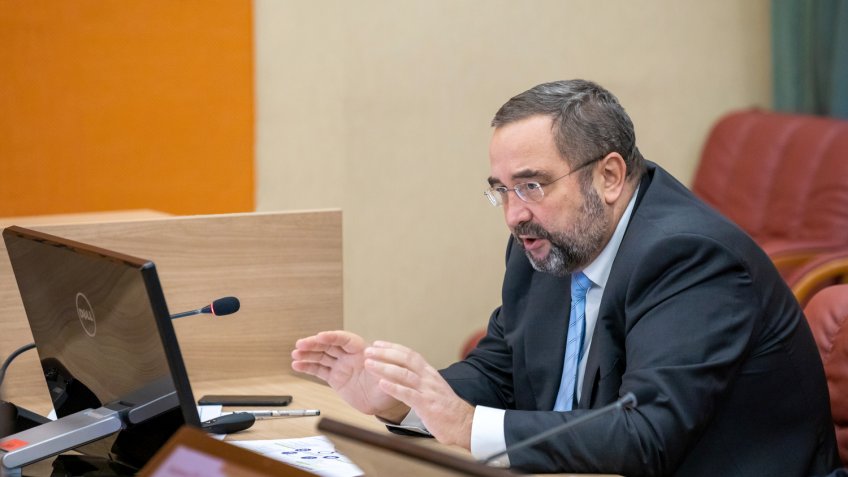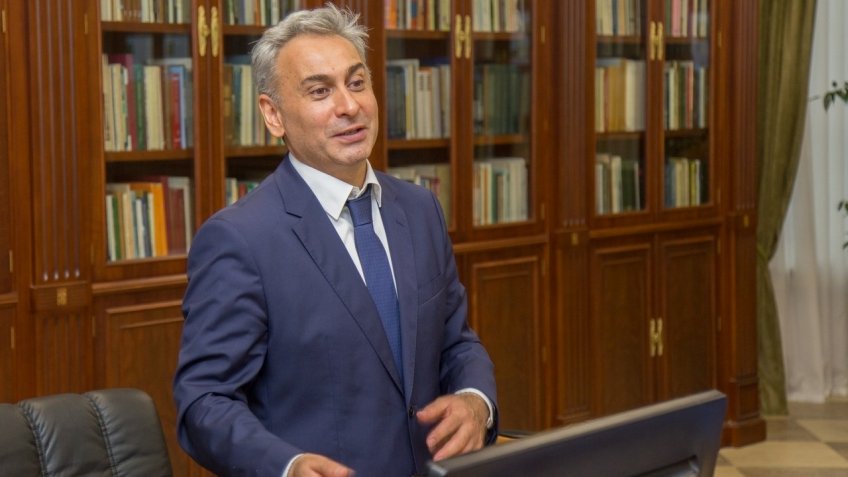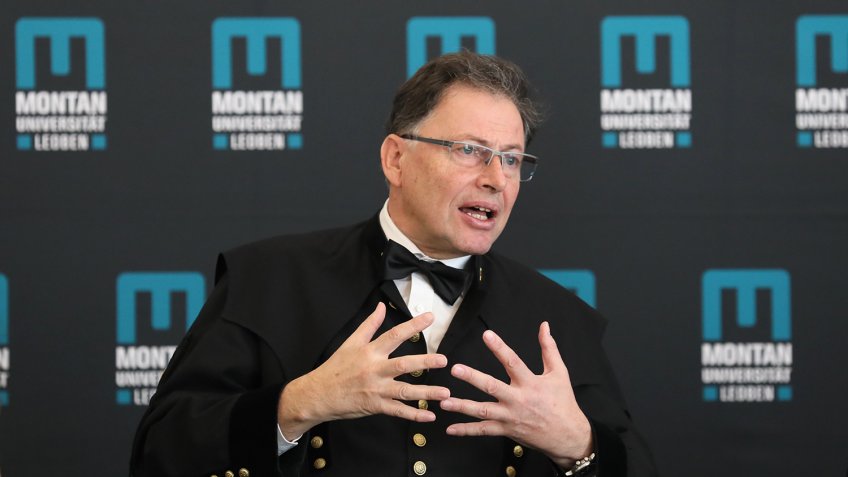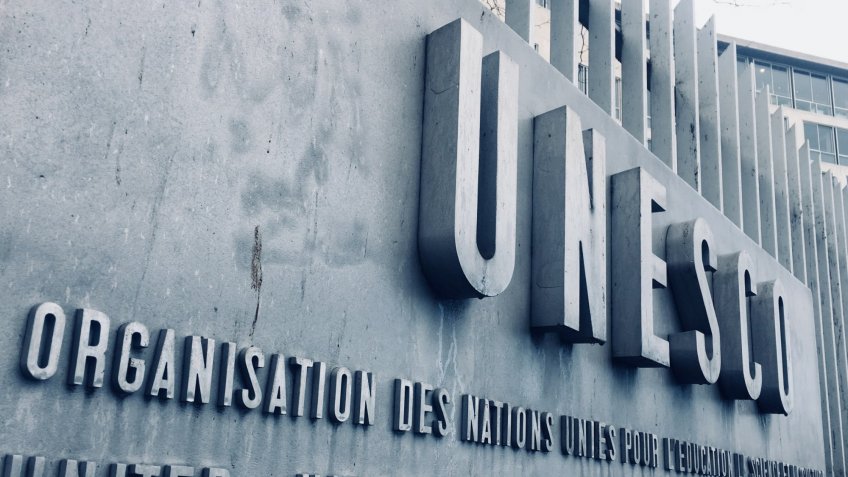
What will the global energy of tomorrow? What changes does the mining industry and oil and gas complex need in order to minimize the burden on ecosystems? Is it possible to achieve the goals of sustainable development proclaimed by the UN and at the same time to provide humanity with minerals? The participants of the large-scale International online forum “Advanced Engineering Competencies - the Future of the Mining Industry", which included representatives of UNESCO, the Russian Ministry of Energy, higher educational institutions, major specialized companies and professional communities, tried to find answers to these and other questions.
Opening the conference, Rector of St. Petersburg Mining University Vladimir Litvinenko reminded that any program of sustainable development, whoever makes it, considers the raw materials sector the foundation of progress. Minerals are the first link of any technological chain; without their mining, the mankind would return to the Stone Age, and national economies would not be able to function. This means that one of the most pressing issues the industry is facing today is the introduction of advanced technologies that can reduce the risk of negative impact on the environment, but at the same time maintain the profitability of production.
"Today a lot of money is invested in the development of renewable energy sources. This is the absolutely right way, which post-industrial countries should follow. At the same time,we must remember that about a billion people on the planet have no access to electricity at all, and that the efficiency of energy consumption in many transition countries leaves much to be desired. If energy transition is imposed on them right now, they will simply go bankrupt. This means that hydrocarbons will continue to play a fundamental role in the global fuel and energy complex for many decades to come. And we need to think not only about increasing the share of wind generators and solar panels in the fuel and energy complex, but also about how to make the oil and gas sector more sustainable," Vladimir Litvinenko set the tone for the discussion.
Shell Country Chair Russia, Cederic Cremers, agreed with him. He stressed that he sees his company's mission as producing clean electricity in increasing amounts, from renewable energy sources among other sources. At the same time, Mr. Cremers reminded that for quite some time they will not be able to meet the growing demand without the help of traditional resources.
"Fossil fuels, especially natural gas, as the purest hydrocarbon raw material, will continue to play an important role for decades to come. To meet the challenges we face, we need to use all available solutions - both existing and future. But solutions do not come from nothing. They appear at the junction of science and technology, and engineers bring them to life. They are the ones who create opportunities for sustainable innovation development, generate innovative ideas, provide technological breakthroughs - something the world needs today. But the ideas alone are not enough, we need to effectively implement them, and this is a task only for well-qualified specialists," pointed out the importance of the forum topics the top manager of Shell.
Vladimir Litvinenko called the reduction of the deficit of qualified personnel, which is now observed in most countries of the world, a prerequisite for the return of public confidence in the mineral complex. He cited Canada as one of the few positive examples where every child in kindergarten is explained how the mining and oil and gas sector affects the quality of life. But in other parts of the world, the situation is quite different.
"There is a lack of confidence in the activities of any mining company in society. New projects a priori arouse negative reaction in the local population. We need to restore confidence in the work of specialized enterprises, because without it, it is impossible to effectively form mechanisms of social and economic development. But how can we do it? The answer is obvious: to raise the level of competence of specialists, which will allow, among other things, to minimize risks related to labor safety and environmental damage," said the Rector of Mining University.
Rolando Zanotelli, Managing Director of the Swiss bank Vontobel, also spoke about the importance of creating an atmosphere of trust. He compared the mining industry with the banking sector and noted that improving the quality of knowledge and skills is a process that must continue throughout life.
"Switzerland is a small country, but we have created a banking system that is genuinely trusted by people all over the world. And it only grows with the years. To achieve this state of affairs was extremely difficult, because one negative event, one mistake could ruin everything. In order to avoid them, it is very important to educate and train personnel, to raise their professional and cultural level. Both those who work in the banking sector and those who work in mining companies need profound knowledge, well above average," said Mr. Zanotelli.
Shamila Nair-Bedouelle, Assistant Director-General for Natural Sciences of UNESCO, emphasized that “raw materials are necessary for the global economy” and therefore “the world simply will not survive without mining.” That is why advanced training of engineers is one of the most important tasks that the UN faces today. It is impossible to achieve sustainable development goals without solving it.
"We are at the crossroads of the further evolution of society. Our demands are growing, we need more energy, metals, fossil fuels. In order to provide mankind with all this, but at the same time to take into account the interests of future generations, we must maintain a high level of professionalism in the mining industry. The International Competence Center for Mining Engineering Education under the auspices of UNESCO, organized in St. Petersburg at Mining University, is our key partner in this field. It is a great honor for us to cooperate with it; in total 96 countries are involved in our work,” said Ms. Nair-Bedouelle.
Anastasia Bondarenko, Deputy Minister of Energy of the Russian Federation also emphasized the coordinating role of the UNESCO Center in the creation of an international unified system of competence for mineral specialists. She emphasized the fact that authoritative professional communities from different countries were involved in this work. In particular, the British institute IOM3, which "on the basis of profound analysis, consultations with business and the public has developed threshold requirements for engineers around the world and criteria for their evaluation".
"Our companies FEC, of course, are interested in a dialogue on this topic. They do a lot to increase the level of competence of their employees. An excellent example is the opening of the Center for Development of Engineering Expertise of SIBUR in Tobolsk, which has received the status of a regional representative office of the International Center of Competence in Mining Engineering Education under the auspices of UNESCO. Not only employees of the company itself, but also specialists from other petrochemical industries, scientific organizations and students of specialized universities will be able to study at this center and improve their skills. This is a great step towards creation of a system aimed at increasing human resources potential of the industry,” said Anastasia Bondarenko.
According to Dominique Fache, a member of the board of directors of KEGOC (managing company of Kazakhstan's electricity networks) and former regional director of Schlumberger in Russia, "the future of education should be connected with the future of energy,” changes in which are taking place at an increasing pace.
"Recently, Exxon Mobil shares were excluded from the blue chip index of Dow Jones. And the President of Total announced that in 20 years, 40% of the company's business will be connected with electricity (produced from renewable energy sources - ed.), that is, its basis will be renewable energy, not hydrocarbons. Of course, the unified system of competence of FEC specialists, the creation of which we are discussing today, should take into account all these changes, as well as the risks that the energy sector is exposed to decoration processes related to climate change. We need to understand what tasks the industry will face in the foreseeable future in order to train engineers capable of solving these tasks. Among those, of course, is the creation of affordable technologies for the industrial scale storage of energy generated by wind generators and solar panels. Otherwise, their further implementation will be senseless," said Dominique Fache.
General Director of the ANO National Qualification Development Agency Alexander Leibovich has no doubt that modern engineers need new competencies. After all, "losses from inaccurate positioning" of graduates of domestic universities in the labor market, the cost of their professional adaptation and retraining reaches up to trillion rubles per year. Naturally, it is hard for companies to bear such a financial burden.
"Previously, the life cycle of qualification often exceeded the life cycle of technology. Now it's the other way around. Therefore, it is extremely difficult to adapt a specialist to modern realities. Of course, implementation of the idea of common professional standards can make this process more efficient," said Alexander Leibovich.
Roman Samsonov, Executive Director of the Russian Gas Society, reminded that the domestic gas market is the third largest in the world after the USA and EU. Naturally, it requires a huge number of qualified specialists from the companies that work on it. Their training and lifelong professional development can only be the result of common efforts of higher education institutions, professional communities, and employers.
PhosAgro’s First Deputy General Director Siroj Loikov, answering a question from Iraq about the impact of technology on human resources, said that it is increasing every year. Thus, young people who come to work in the company after graduation from university before being allowed to work with complex equipment, including underground special machinery, are trained on simulators.
"The partners supply us not only mining machines, but also simulators simulating the production process. Graduates study using them and get an idea of the real conditions in which they will then have to work. By the way, Mining University, from which about 30% of the management staff of our flagship enterprise "Apatit" came out, also pays great attention to the use of digital technologies and virtual complexes in the educational process. That's why its students have good experience in such classes," said Siroj Loikov.
At the end of the forum the participants discussed the nuances of personnel certification system and educational programs, which will be handled by the experts of the International Center of Competence in Mining Engineering Education under the auspices of UNESCO. The parties exchanged the most relevant practices that have been implemented at the national level and came to a common conclusion on the need for a unified international accreditation system.
It should be noted that more than 500 people took part in panel discussions held in the framework of the International online forum "“Advanced Engineering Competencies - the Future of the Mining Industry." In particular, Pierce Riemer, Director General of the World Petroleum Council, Wilfried Eichelseder, Rectors of the University of Leoben (Austria), Song Xuefeng, President of China University of Mining and Technology, Jerzy Lis, AGH University of Science and Technology (Poland), Darrin Cweil, Consultant, Department of International Trade of the UK Government, Raj Kumar Sachdev, President of Coal Preparation Society of India Ltd, and many other experts took part in the panel discussions. Forpost will continue to publish materials to introduce their positions on the mechanism of creating an international unified system of competencies for mineral specialists based on common threshold requirements for mining engineers.
